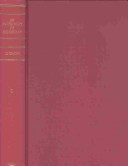Antoine Le Grand (d. 1699) was born in Douai, northern France, but spent most of his life in England as a tutor and writer, becoming famous as the most prominent English Cartesian of the time. The reception of Descartes's philosophy in England was at first favourable, but it soon turned hostile. Le Grand sprang to Descartes's defence in a series of books written in Latin, three of which were later translated into English by Richard Blome and published as "An Entire Body of Philosophy according to the principles of the famous Renate Des Cartes" in 1694. The first book, "The Institution", sets out and explains Descartes's general theoretical principles in application to many and various fields; it has sections on logic, mind, matter, God and ethics, the four elements (earth, air, fire, water) and the human body. The middle book, "The History of Nature", reports a huge range of experiments and examples - in botany, zoology, meteorology, medicine, astronomy - which purport to show how Descartes's general principles can account for all phenomena in the natural world.
The final book, "A Dissertation of the Want of Sense and Knowledge in Brute Animals", supports the characteristically Cartesian claim that non-human animals are just complex machines without minds or souls or feelings of any kind.
- ISBN10 1843710528
- ISBN13 9781843710523
- Publish Date 15 March 2003
- Publish Status Out of Print
- Out of Print 26 February 2016
- Publish Country GB
- Publisher Bloomsbury Publishing PLC
- Imprint Thoemmes Continuum
- Edition facsimile of 1694 ed
- Format Hardcover
- Pages 804
- Language English
